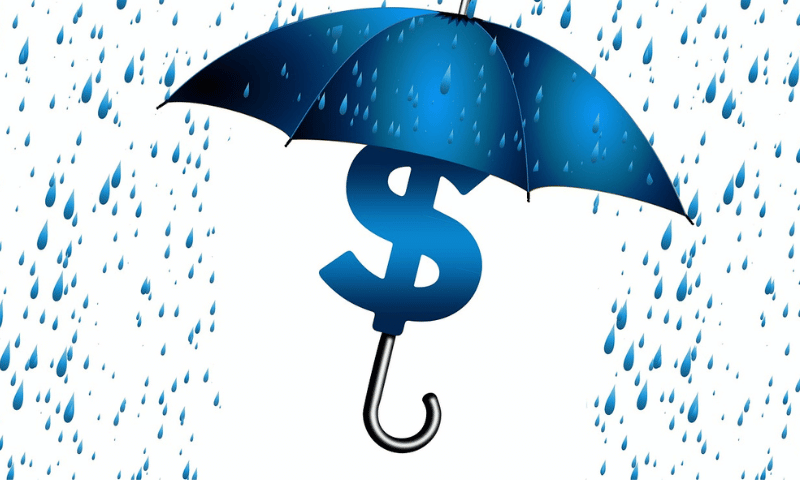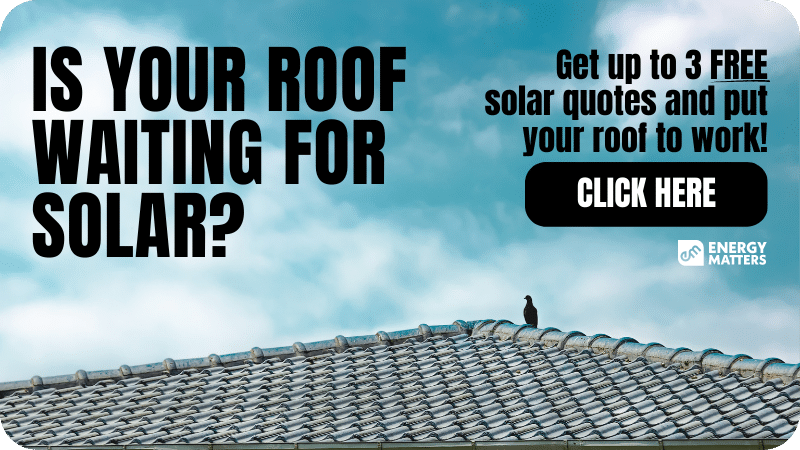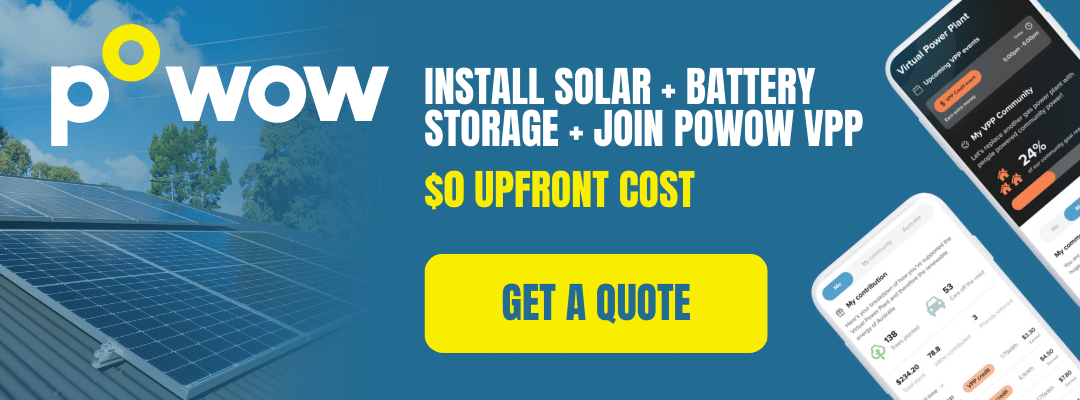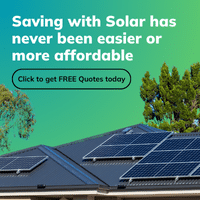
On this page
Solar energy is a popular choice for homeowners in Australia due to the abundance of sunshine and the environmental benefits it provides. With the growing number of Australians installing solar panels, the question about solar system damage, and whether you should get insurance, arises. Interestingly, many Australians are unaware of how insurance works for solar systems. So, how does it work? And do you need solar panel insurance?
Energy Matters has been a leader in the renewable energy industry since 2005 and has helped over 40,000 Australian households in their journey to energy independence.
Let us discuss and choose the best quote that suits your needs and budget, and we can connect you with our trusted local installers, who will provide up to 3 FREE solar quotes for your home and business solar energy system. Get your free quotes today!
Your solar system and your home insurance
Your solar panels are a part of your home or building; therefore, they will likely be covered by your home and content insurance policy should they get damaged by things covered in your policy. The insurance covers a range of risks, including theft, vandalism, and damage caused by natural disasters. However, you need to talk to your insurance company about the insured building sum, as you can increase this if necessary.
Visit our page to learn more about solar panel theft and security – anti-theft devices.
The risks and insurance considerations for your solar system
There are several risks when it comes to your solar system, which impacts your insurance coverage. One is the risk of installation, as it should be properly installed and maintained, which will guarantee its safety and efficiency. It is also the reason a professional roof inspection is recommended that will determine if the roof is structurally sound prior to the rooftop solar panel installation.
The electrical cabling is also a crucial component, so it should have insulation aligned to the solar system’s conditions.
Another risk is the weather, which is costly in property insurance. In fact, hail is the leading driver behind solar system insurance claims. Most solar panels are rated as being able to withstand hailstones up to 35mm in diameter. However, there are some cases when hailstones are bigger that cause significant damage to solar panels.
In addition, there are areas in Australia prone to large hail stones that put their solar panels at higher risk.
Finally, there is a fire risk, which is not as common as weather-related incidents. However, the damage from a fire can be significant to the solar system, such as when the wiring fails or there is an issue in the inverter, which can lead to arcing where the electrical current will pass through the air. Hence, this will cause extreme temperatures that could lead to a fire.

Paying more for insurance
With solar panels on your property, you need to think about increasing the sum you are insured for to match the average amount of repair or replacement for your solar system. However, it’s important to note that this can be costly, and you’ll need to weigh up the cost of the insurance policy against the potential cost of repairs or replacement.
Your solar system warranty
So, what happens if your solar panels don’t get damaged but encounter issues with electrical or performance? This is where the warranty of your solar system comes in.
In general, solar panels are covered by two types of warranty: product warranty and performance warranty.
A performance warranty usually covers 25 years (the industry standard for solar panels) and ensures that the solar panels will produce a minimum percentage of their rated capacity. The standard warranty for solar inverters is 10 years. On the other hand, the product warranty covers any physical and electrical problems in your solar system that cause the system to fail or underperform.
This is why you need to be meticulous when choosing a solar panel manufacturer because you want to work with someone who can honour their warranties.
It’s essential to ask a few important questions about your solar panel manufacturer to help ensure you get the best warranty for your solar system. One is the money-back guarantee that should last between five and ten years. The second is to ask about the performance warranty. As mentioned, it should be at least 25 years.
Third is to ask about the warranties of the system’s parts, such as the components and panels; finally, ask about the labour and workmanship, which should typically come with five to ten-year warranties.
Energy Matters recommends you choose Tier 1 solar panel manufacturers because they are the financially-stable ones who can honour their warranties. In addition, they are known to produce higher-quality solar panels.
Next, ensure you get written statements from your installer and manufacturer regarding the system’s performance, warranties, and guarantees. This will help you if you need an insurance or warranty claim.
Don’t be underinsured
Having the right insurance coverage for your home or business is important. This is why you should review your sums regularly and add the current costs of solar system replacement. Consider the increase in labour costs, which impacts the total replacement costs.
In addition, keep in mind that supply shortages are happening globally, which means replacing panels may be challenging.
Then, council regulations need property rebuilds or repairs to include minimum solar power inclusions, which should be a significant factor when it comes to the sum insured.
Complete our quick Solar Quote Quiz to receive up to 3 FREE solar quotes from trusted local installers – it’ll only take you a few minutes and is completely obligation-free.
Still can’t afford to switch to solar power?
Are you considering getting solar panels but are currently short on funds? You can still invest wisely, and Energy Matters can help you.
Powow and Energy Matters have teamed up to provide consumers with an alternative to switching to solar power and battery storage.
The biggest obstacle to installing solar and battery storage is typically finance. With Powow’s PPA and VPP, our customers will have a $0 upfront option and financial stability in the uncertain energy market.
Get up to 3 obligation-free quotes by getting in touch with us right away. Find out what payment plan options suit your needs and budget!
Check out our page for Powow: Power Purchase Agreement (PPA) and Virtual Power Plant (VPP).
Energy Matters will feature stunning homes installed with the latest solar technology every Saturday at 4.30 pm on Open Homes Australia on the 9Life channel. Be sure to watch this show; you don’t want to miss it!










































